Resident Coordinators gather to leverage the Pact for the Future to gear up for delivery of the SDGs
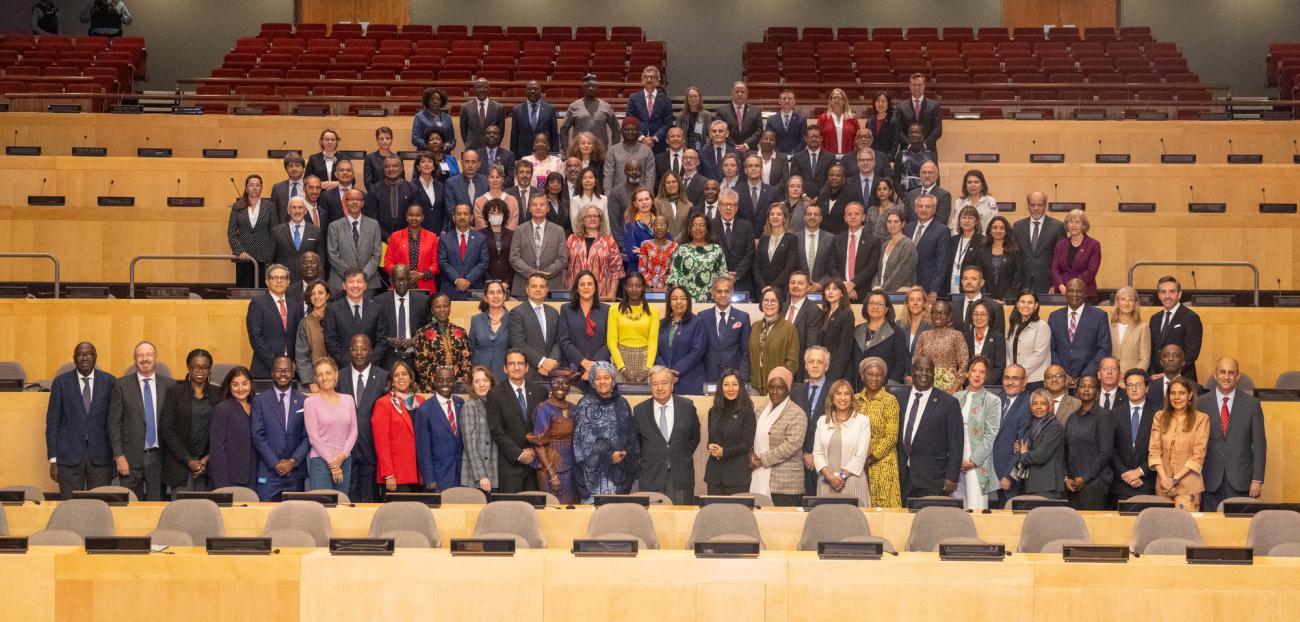
In October, UN Secretary-General António Guterres convened Resident Coordinators (RCs) from across the globe in New York.
New York, 22 October 2024 – UN Secretary-General António Guterres convened Resident Coordinators (RCs) from across the globe in New York last week, underscoring their pivotal role in leveraging the transformative vision of the Pact for the Future into tangible progress on the Sustainable Development Goals (SDGs).
"The Pact for the Future that was adopted includes breakthroughs and reforms to revitalize the multilateral system to meet this challenging moment," Mr. Guterres emphasized. "As Resident Coordinators, you and your teams have a critical role to play in leveraging the Pact to help countries accelerate progress towards the SDGs."
Deputy Secretary-General and Chair of the United Nations Sustainable Development Group, Amina J. Mohammed, echoed this call to action. She noted, “The Pact of the Future is a recommitment to the goals we have set, and it also encompasses the new era of technology, meaningful youth engagement and future generations, things that weren’t on the table when the 2030 Agenda was adopted in 2015.”
With this clarion call, RCs delved into how to effectively bridge global commitments and local action, turning the Pact's ambitious aspirations into concrete achievements for the advancement of the 2030 Agenda on the ground.
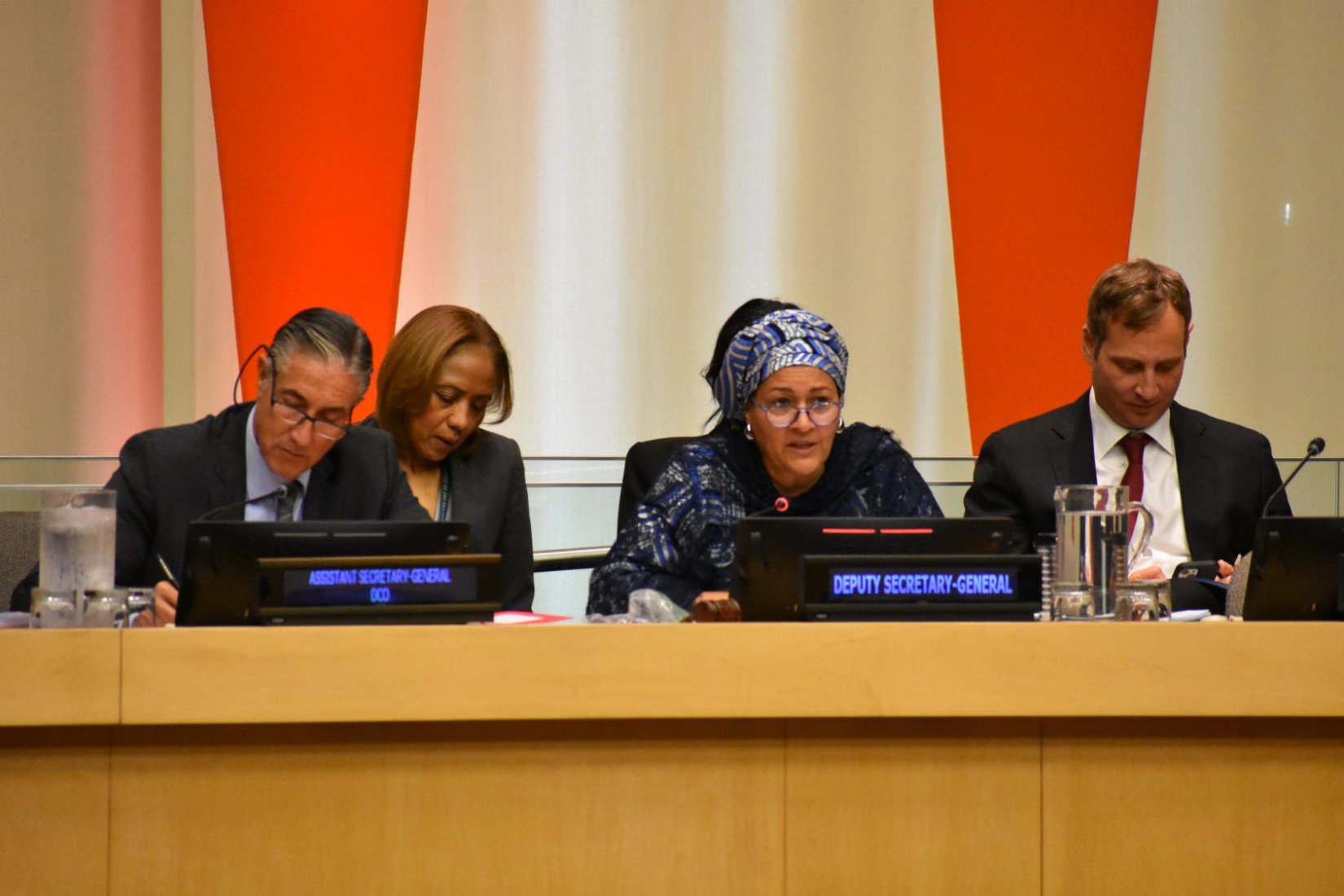
Driving the SDGs: Financing, Climate and New Technologies
RCs are playing a critical role in working with their UN Country teams to advance key areas highlighted in the Pact for the Future, with a focus on assisting governments in closing the SDG financing gap, stepping up climate ambitions, and navigating new technologies to meet the deadline of the 2030 Agenda.
The SDG financing gap represents the shortfall in funding needed to achieve the SDGs. To close this gap, RCs are supporting government to strengthen their capacity, building on overseas development assistance, to access and manage different forms of financing including private and concessional financing, as well as improving their ability to mobilize domestic resources through effective budgeting practices and addressing tax evasion.
On climate change, RCs are supporting countries to strengthen their commitments under the Paris Agreement and accelerate action on the ground. This includes helping governments create ambitious national climate plans that align with the goal of limiting global warming to 1.5⁰C, covering all greenhouse gases, sectors and the whole economy. RCs are also helping countries identify promising climate strategies and investment-ready projects, and connecting them with climate financing from various sources, including multilateral development banks and international financial institutions.
Recognizing the transformative potential of technology, RCs are working to help governments harness its benefits while supporting dialogues on mitigating potential risks. Discussions ranged from supporting the development of policies, laws, and safeguards around technology to ensuring participation from all segments of society in shaping the technological landscape. RCs also stressed the importance of securing funding to ensure that countries can fully leverage opportunities and challenges presented by technologies like artificial intelligence.
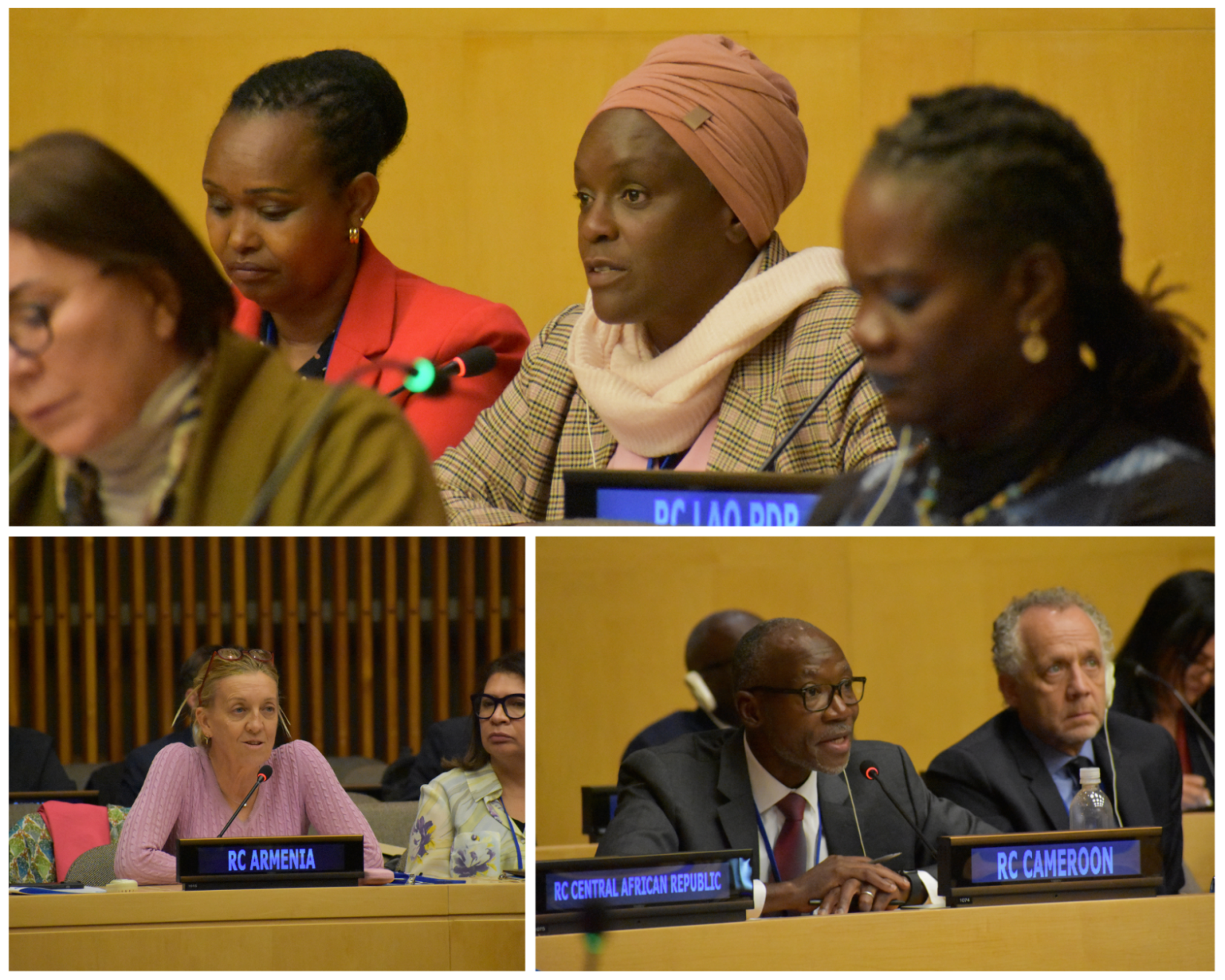
The importance of solidifying the reform of the UN development system, with a reinvigorated Resident Coordinator system at its core, was a recurring theme throughout the week-long conversations on what it takes to realize the vision of the 2030 Agenda.
In an exchange with RCs and Member States, many Member States reiterated their commitment to supporting the Resident Coordinator system to ensure its long-term sustainability and effectiveness.
Many delegates noted that as the world navigates a complex and challenging landscape, Resident Coordinators, with the UN country teams, are essential partners in driving SDG implementation.
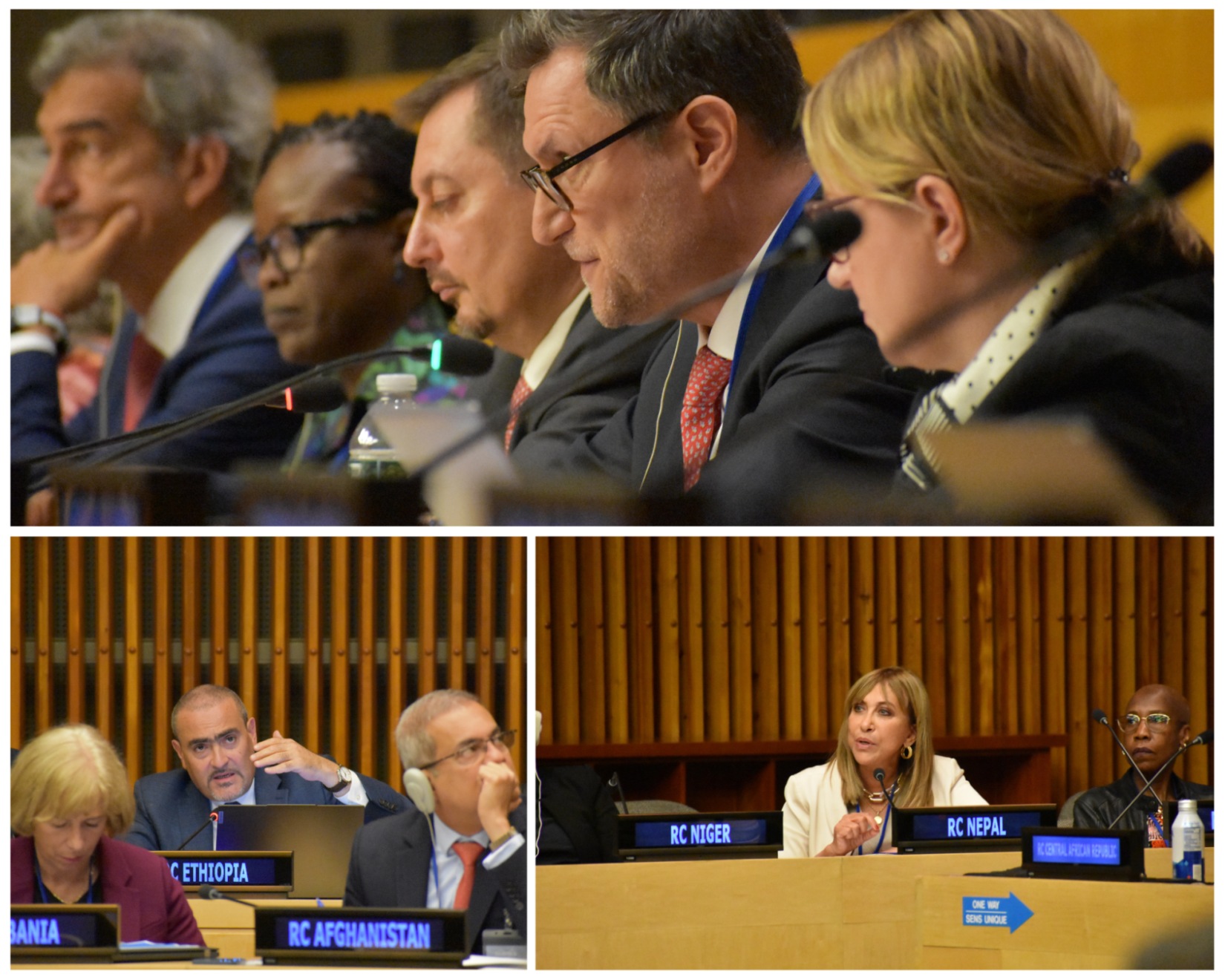
Championing Inclusion and Communicating Impact
Resident Coordinators were recognized for their efforts to champion diversity and inclusion with their UN country teams. This commitment was celebrated through a series of awards recognizing outstanding achievements in advancing gender equality and disability inclusion.
The annual RC Global Meeting also provided an opportunity to celebrate excellence in demonstrating the impact and results of the UN country team’s work and alignment with the priorities by national governments. These awards, tied to the culture of accountability, recognize a range of approaches giving full visibility and transparency on the UN work and results in country, from compelling storytelling and data-driven analysis to innovative design, while also acknowledging the resilience and resourcefulness demonstrated by UN teams operating in challenging environments.
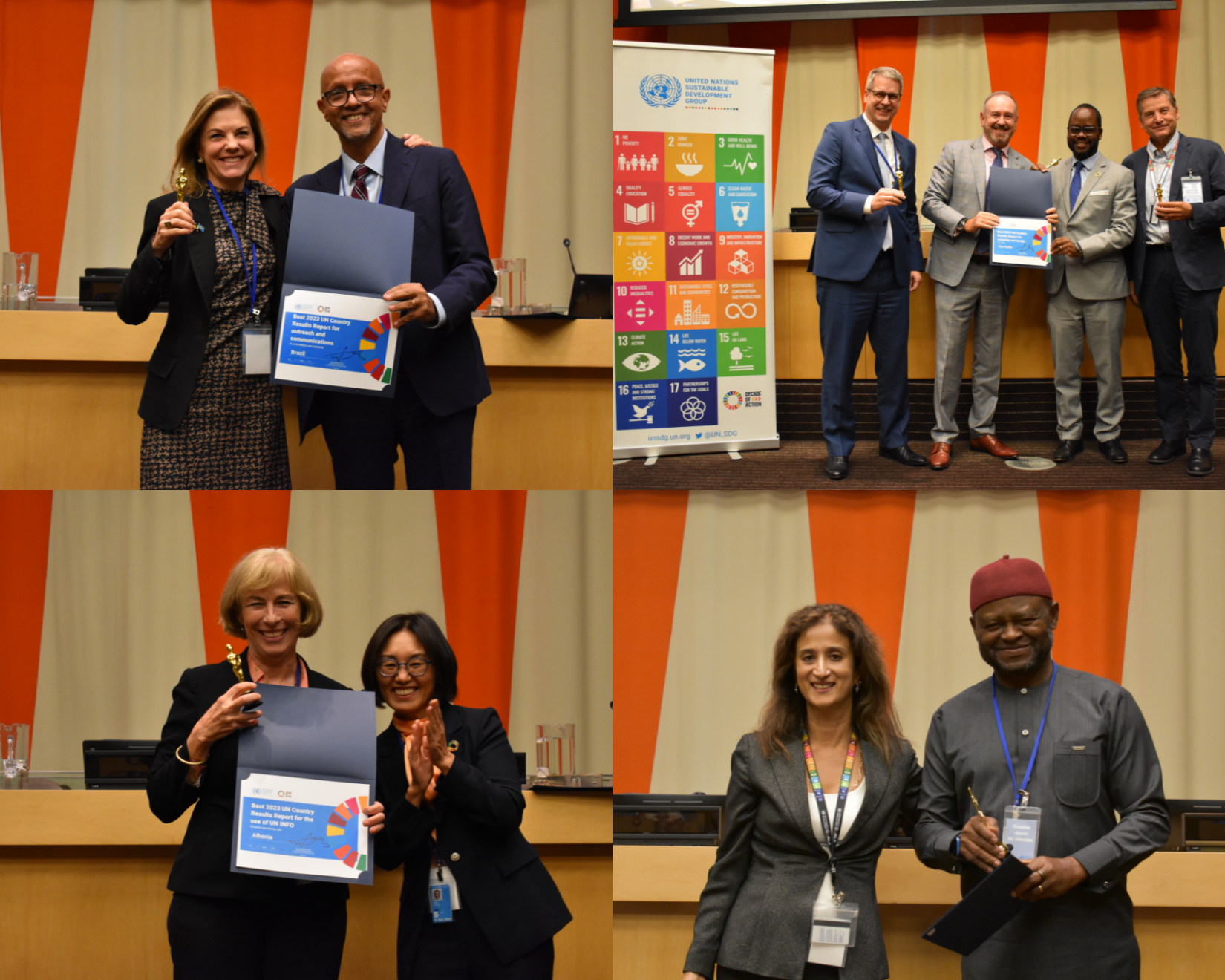
The following 28 reports were celebrated for their exemplary work in portraying the work of the UN in country:
In Africa:
- Best report in the region – Gabon
- Best report for storytelling – Guinea Bissau and Eswatini
- Best report for creativity and design – The Gambia
- Best report for the use of UN INFO – Cabo Verde
- Best report for outreach and communications – Egypt and Zambia, e-Report
- Best report in a challenging setting – Mali and Sudan
In Asia and the Pacific:
- Best report in the region – Lao PDR
- Best report for storytelling – Philippines
- Best report for creativity and design – The Pacific
In Latin America and the Caribbean:
- Best report in the region – Mexico
- Best report for the use of UN INFO – Bolivia, e-Report
- Best report for outreach and communications – Brazil
- Best report for creativity and design – Dominican Republic
- Best report for storytelling – El Salvador
- Best report in a challenging setting – Cuba
In Europe and Central Asia:
- Best report in the region – Turkmenistan
- Best report for creativity and design – Montenegro
- Best report for the use of UN INFO – Albania, e-Report
- Best report for storytelling – Georgia
- Best report for outreach and communications – Kosovo
- Best report in a challenging setting – Armenia
In the Arab States:
- Best report in the region – Iraq
- Best report for creativity and design – United Arab Emirates
- Best report in a challenging setting – Lebanon, e-Report
- Best report for storytelling – Yemen
This article was first published on the United Nations Development Coordination Office website.


















